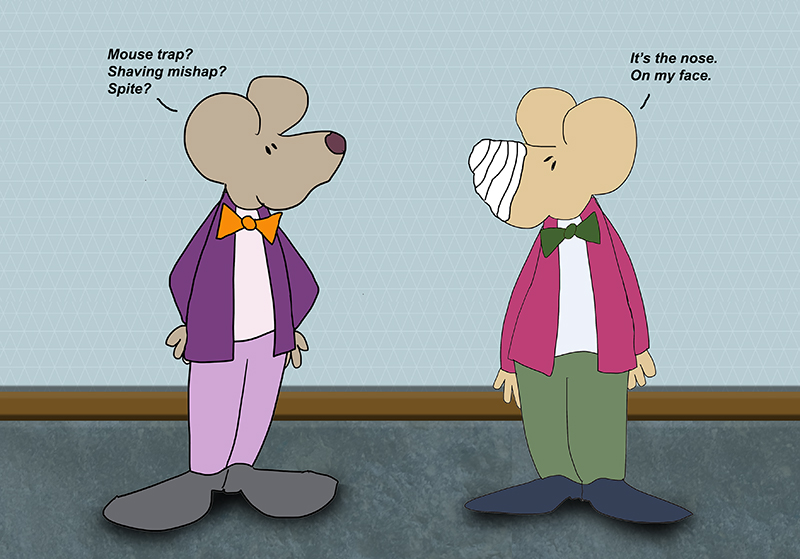Spite. Spit. With an “e” on the end.
Thankfully, I haven’t known many spiteful people in my life. Perhaps, the key word in that phrase is “known.” It may be that spite unfolds when we are least aware of it.
Spite is the desire to hurt, annoy, or offend someone. Often, it is done without any particular gain for the person who is committing the offense.
They say this is something everyone engages in at one point or another. These acts of “spite,” these gestures, might be as petty as cutting someone off while we are in traffic, even if it puts you in a slower lane. Or it could be something as big as spending loads of money on something, just to “show” someone, like a neighbor or family member.
There’s no good in this. Acting in a spiteful manner — when we deliberately try to hurt someone, even when there’s nothing to gain, might even cause us to suffer as well.
We all know the old phrase, “Cutting off the nose to spite the face.”
It turns out there is a story behind that one.
According to a medieval legend, this story comes to us from around 870 CE.
It happened that day, as it did in those times, that some Viking raiders were closing in on a monastery in Scotland. So, good St. Aebee the Younger got all the nuns together. She told those nuns to disfigure themselves, saying it would keep the Vikings from raping them.
St. Aebee then took out a knife, and she cut off her own nose and lip. The rest of the nuns followed, doing the same thing to their faces. When the Vikings arrived, all set for their raping and pillaging, they recoiled in horror, seeing those nuns.
And there it was. Aebee had cut off her nose to spite her face, and her idea had worked. For a minute. As it turned out, the nuns weren’t raped. But the Vikings set fire to the convent with the nuns inside, and they were burned alive.
Spite is a topic of extensive research, as I’ve come to find out. To the average person, spite is when you really want to hurt someone. But social scientists, and all their studies, have come up with a more specific definition.
They say spite is a behavior “which is costly to both the actor and the recipient — and is one of four “social behaviors.” The other three behaviors are altruism, selfishness, and mutual benefit.
• Altruism has a positive effect on the recipient but a negative effect on the actor.
• Selfishness has a negative effect on the recipient but a positive effect on the actor.
• Mutual benefit holds a positive effect on both the actor and the recipient.
When they break it down in this manner, researchers have called spite the “neglected ugly sister of altruism.”
The reason for this is that both spite and altruism cause behaviors that come at the cost of one’s own fitness. In both of these, the actor doesn’t necessarily care what happens to them. They are not doing what they do for personal gain. In both altruism and spite, it’s all about what happens to the recipient party.
So close, and yet, so far.
Either way. I think most of us know which side of things we’d like to be on. When we are around positive people, that energy radiates. Unfortunately, the same thing happens when we are around negative people.
To feel the difference should remind us how much better things feel when goodness abounds when kindness is at the core.
Most of all, when we are in the light, our noses can stay exactly where they’re supposed to be.
===========
“If you want to find the secrets of the universe, think in terms of energy, frequency and vibration.”
― Nikola Tesla
=========
“We are all connected; To each other, biologically. To the earth, chemically. To the rest of the universe atomically.”
― Neil DeGrasse Tyson
=========
“The energy of the mind is the essence of life.”
― Aristotle, The Philosophy of Aristotle
==========
The nose knows.
